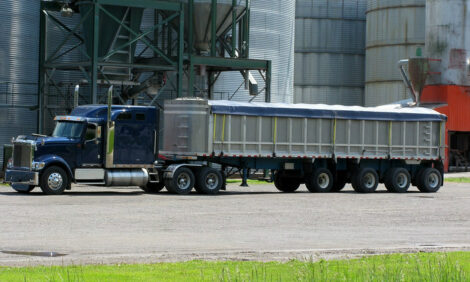



H1N1 Flu Infects Turkeys in Canada
ONTARIO, CANADA - Turkeys in one house on an Ontario farm have been found to be infected with the influenza A H1N1 virus. Authorities are reminding the public that food safety is not at risk. Turkey workers are recommended to get immunised against the H1N1 virus.Turkeys in one barn at an Ontario facility have been found to be infected with the H1N1 flu virus, reports Ontario Ministry of Agriculture, Food and Rural Affairs (OMAFRA).
Food safety is not at risk. No birds or eggs from this facility have entered the food chain. Proper cooking practices destroy the influenza virus.
As a best practice, all individuals are encouraged to practice proper hygiene and, if they have flu-like symptoms, they should stay at home, and avoid contact with livestock. Ontarians should get vaccinated against both H1N1 and the seasonal flu as the vaccines become available.
Test results indicate that the strain of flu isolated from the turkeys is the same as the H1N1 flu that has been circulating among humans since April 2009.
Local public health units are contacting individuals who may have had contact with the flock. The Ministry of Agriculture, Food and Rural Affairs (OMAFRA), the Ministry of Health and Long-Term Care and the Ministry of Labour will continue to monitor the situation and work with the producer and their employees.
The producer has voluntarily quarantined the infected birds and put movement controls in place.
Dr Deb Stark, Chief Veterinarian for Ontario, said: "Influenza viruses such as this circulate amongst birds, livestock and humans. This report is a good reminder to farmers to be even more conscientious than usual when it comes to protecting their flocks and ultimately, the people who come in contact with them."
Dr Arlene King, Chief Medical Officer of Health, commented: "I am satisfied that this flock does not pose any threat to the health of the general public. In order to protect themselves and the animals they are working with, I strongly advise all poultry and livestock workers to get immunised against the H1N1 flu virus."









